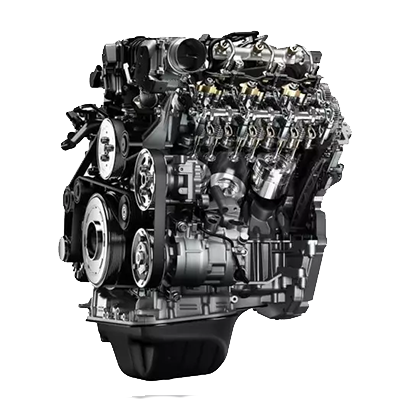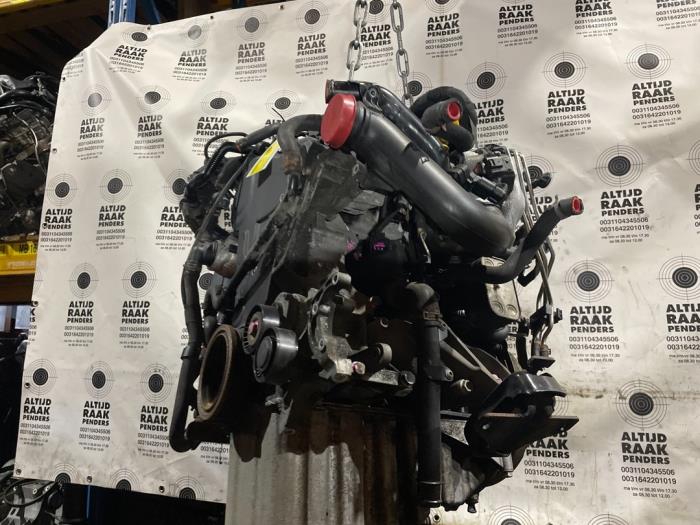Navigating the Refine of Engine Selection: Key Variables to Consider
The procedure of engine option is a complex endeavor that demands careful evaluation of several vital aspects to make certain placement with functional goals. Performance needs, fuel efficiency, and monetary constraints are just the beginning; considerations around environmental impact and maintenance assistance play a pivotal role in the decision-making framework. Comprehending how each of these aspects connects can substantially influence the effectiveness and durability of your financial investment. Nonetheless, the intricacies of each element may not be right away evident, motivating more examination of exactly how to purposefully browse this complicated landscape.
Performance Needs
When choosing an engine, it is crucial to develop clear performance demands that straighten with the designated application. Performance requirements encompass a series of elements, consisting of power result, torque attributes, and responsiveness, which need to be tailored to the particular needs of the vehicle or equipment in concern.
Power outcome, normally measured in horsepower, identifies the engine's ability to thrust a vehicle or execute a task successfully. Torque, on the other hand, is essential for applications calling for solid initial velocity or heavy training abilities. An understanding of the operational setting is also crucial; for example, engines created for off-road applications might require different performance attributes contrasted to those intended for freeway usage.
Moreover, consider the functional lots and responsibility cycle, as these elements influence the engine's long life and integrity. In high-load circumstances, a robust engine layout might be required to avoid premature wear or failure.
Fuel Efficiency Considerations
While efficiency demands are essential, fuel efficiency is similarly vital in the engine choice process, as it directly affects operating expense and environmental sustainability. Fuel-efficient engines eat less fuel per device of job done, which not just decreases overall expenditure however additionally reduces greenhouse gas discharges. As companies increasingly prioritize sustainability, selecting an engine that enhances fuel performance can enhance corporate obligation and conformity with ecological guidelines.
When examining gas performance, it is important to consider the engine's design and technology - amarok engine for sale. Technologies such as turbocharging, straight gas shot, and crossbreed systems can dramatically enhance gas economy. Additionally, understanding the operating problems and responsibility cycles of the engine application is essential; engines may do in a different way under differing lots and rates
In addition, makers typically provide gas intake data that can be used to compare numerous engine choices. In recap, gas performance is a multi-faceted consideration that calls for comprehensive analysis throughout the engine selection process.
Budget Plan and Cost Evaluation
Budget and expense evaluation offers as a crucial element in the engine selection process, influencing both short-term investments and long-term operational costs. When assessing prospective engines, it is vital to consider not just the preliminary acquisition price yet likewise the complete cost of possession, which encompasses installment, upkeep, fuel usage, and potential downtime.
A thorough evaluation should start with the ahead of time costs connected with the engine, consisting of needed alterations or secondary equipment. Nevertheless, focusing solely on first expenses might result in misdirected decisions. Evaluating operating expense over the engine's lifespan is similarly important, as much more costly engines could offer remarkable gas effectiveness or lowered upkeep needs, eventually bring about set you back savings.

Environmental Impact Elements
Comprehending environmental effect elements is crucial in the engine choice process, as sustainability considerations have become increasingly important for both governing compliance and business duty. Organizations must evaluate the exhausts generated by various engine types, consisting of co2, nitrogen oxides, particulate issue, and unburned hydrocarbons. These emissions add considerably to air pollution and environment adjustment, requiring a mindful evaluation of the engine's ecological footprint.
Moreover, fuel type plays a critical duty in environmental impact. Engines powered by eco-friendly power resources, such as biofuels or hydrogen, often tend to have a reduced ecological impact contrasted to conventional fossil fuels. Furthermore, the lifecycle assessment of the engine, from manufacturing with operation to disposal, should be considered to recognize the full range of its environmental effects.

Upkeep and Support Choices
When choosing an engine, the accessibility of maintenance and support choices is a crucial consideration that can substantially affect functional performance and longevity. Comprehensive maintenance intends make certain that the engine operates at peak efficiency and lessens unforeseen downtimes. It is necessary to examine the maker's assistance network, consisting of the accessibility of qualified technicians and solution facilities.
Analyzing the access of spare parts is additionally crucial. A dependable supply chain for parts can minimize preparations for repairs and upkeep, thereby improving total performance. In addition, consider the convenience of acquiring technological documentation and training resources, which are essential for guaranteeing that personnel are well-appointed to handle regular and emergency situation circumstances.
One more crucial aspect is the guarantee and service arrangements offered by the manufacturer. These arrangements can offer comfort and monetary security against unanticipated concerns. Eventually, a positive method to upkeep and assistance not only prolongs the life of this article the engine yet likewise adds to the total success of the operation. Cautious consideration of these aspects will certainly lead to notified choices that line up with functional goals and budgets.
Conclusion
To conclude, the process of engine option requires a detailed examination of different crucial factors, consisting of efficiency requirements, fuel performance, spending plan restraints, ecological effect, and upkeep assistance. By diligently evaluating these aspects, informed choices can be made that line up with operational goals and sustainability goals. Inevitably, a critical method to engine option will ensure optimum performance and long life while attending to financial and environmental considerations successfully.
While performance needs are critical, fuel performance is similarly crucial in the engine choice process, as it directly influences operating prices and ecological sustainability. As organizations increasingly focus on sustainability, selecting an engine that enhances gas efficiency can boost company obligation and conformity with ecological policies.
Furthermore, understanding the operating problems and duty cycles of the engine application is essential; engines may execute in a different way under varying lots and speeds. (amarok engine for sale)
Reviewing operating costs over the engine's life expectancy is equally important, as much more costly engines could supply superior fuel efficiency or reduced maintenance requirements, eventually leading to set you back financial savings.
In conclusion, the process of engine choice demands a detailed assessment of numerous important elements, consisting of efficiency requirements, fuel effectiveness, spending plan constraints, ecological influence, and maintenance assistance. - amarok engine for sale
Comments on “Locate a Wide Choice of Amarok Engine for Sale-- Best Options for Your Automotive Requirements”